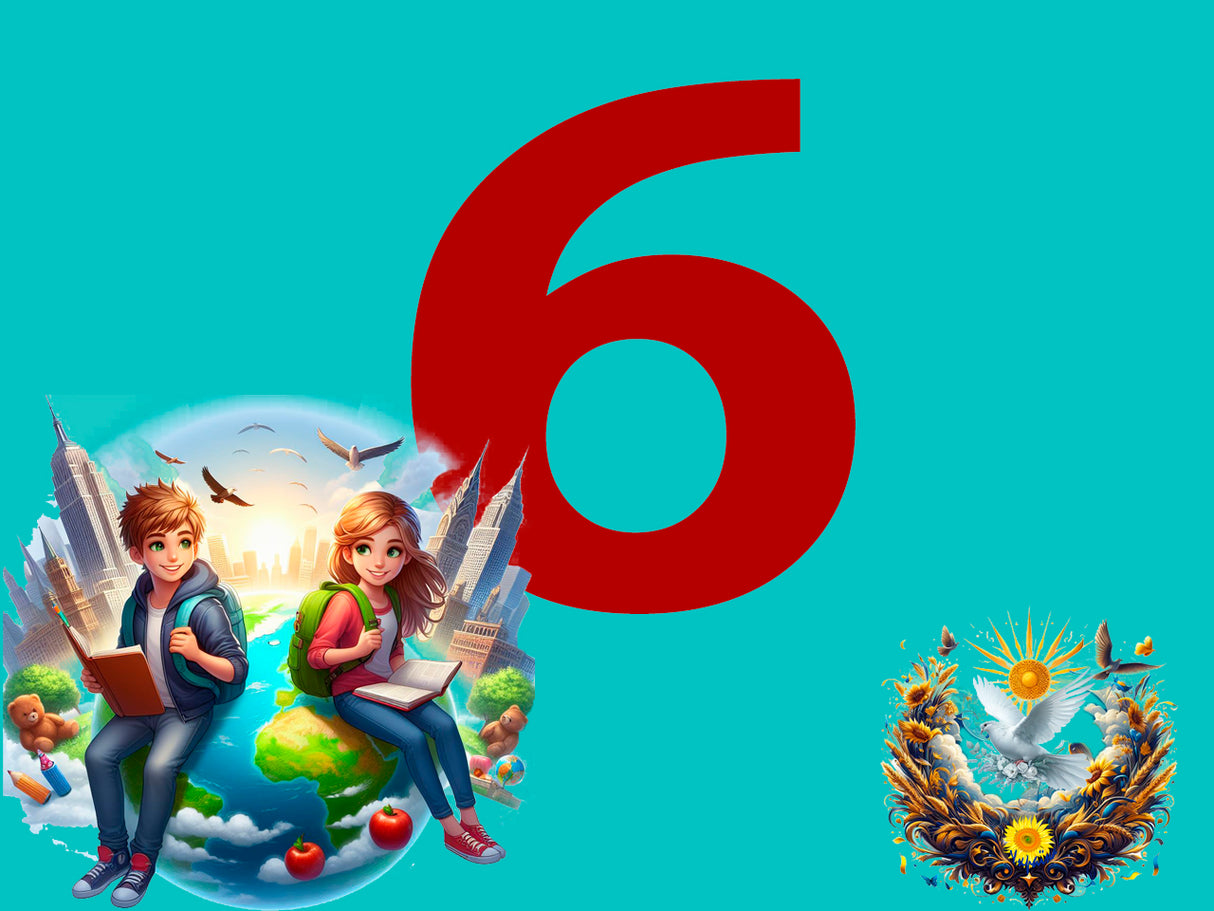Geography Grade 6. The Earth's shell - the lithosphere . Collection 1
 Intermediate
Intermediate
 Course
Course
 11 hrs
11 hrs
Geography Grade 6. The Earth's shell - the lithosphere . Collection 1 - Ukrainian is backordered and will ship as soon as it is back in stock.
What is Unibot?
What is Unibot?
Unibot is a platform for educational systems that combines an administration panel and a chatbot. It allows you to easily upload data, customize chatbots without programming, and manage courses. It supports multilingual bots, content management, and optimized resource utilization for efficiency. The platform makes educators' work easier by automating repetitive tasks. Different pricing plans are available, from basic to premium, which differ in the number of supported bots, languages, messages, and other features.
More information
An engaging, interactive course designed for children, featuring interactive tests and activities.
This interactive course introduces students to the fascinating topic of Earth's lithosphere. Through dynamic activities, exercises, and quizzes, children will explore the Earth's inner structure, plate tectonics, and geological processes in an engaging and educational format. The course emphasizes hands-on learning, fostering critical thinking and problem-solving skills while connecting geographical concepts to real-world phenomena.
Key Concepts Covered in the Course
- The Earth's inner structure and lithospheric plates
- Internal processes: plate movements, consequences, and their significance
- Earthquakes
- Volcanism, geysers, and seismic zones
- External processes: weathering, the impact of water, wind, glaciers, and underground water
- Minerals and rocks, natural resources
- Relief of continents and the ocean floor
- Formation of mountains and plains and their diversity
Course Modules
Module 1: The Earth's Shell - The Lithosphere
- Lesson 16: The Earth's Inner Structure
- Lesson 17: Plate Movements
- Lesson 18: Earthquakes
- Lesson 19: Volcanoes
- Lesson 20: Work of Surface Water
- Lesson 21: Work of Glaciers and Wind. Weathering
- Lesson 22: Minerals and Rocks
- Lesson 23: Relief of Continents. Plains
- Lesson 24: Mountains
- Lesson 25: Relief of the Ocean Floor
Expected Learning Outcomes
- Understand the Earth's inner structure and the composition of the lithosphere
- Independently or collaboratively identify the geographical location of lithospheric plates
- Comprehend the causes of plate movements, earthquakes, volcanic eruptions, and geysers
- Establish connections between phenomena and processes occurring in the lithosphere
- Locate and identify on maps specific volcanoes (Etna, Vesuvius, Kilimanjaro, Mauna Kea), mountains (Himalayas, Alps, Carpathians, Crimean Mountains, Andes), and plains (Amazon Lowlands, Deccan Plateau, East European Plain, Dnieper Upland, Dnieper Lowland)
- Determine geographical coordinates of the highest peaks worldwide and in Ukraine
- Explain how the landscape influences human settlement, lifestyle, and worldview
- Apply knowledge to solve practical problems, such as behavior during earthquakes, volcanic eruptions, or landslides
- Identify the distribution of natural resources based on specific criteria
- Share impressions and insights gained from research or projects
- Present research results using maps, including digital tools
This interactive course combines geographical knowledge with practical skills, encouraging students to appreciate Earth's dynamic systems. Through collaboration, research, and innovative projects, students will develop curiosity and confidence in understanding and addressing the world's geographical challenges.
-
Genre
-
Target audience
-
Language version
-
Subject area
-
Recommended age group
-
Course time
-
Book author
-
Author Collection



